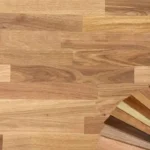Parquet flooring, a form of wood flooring made from small pieces of hardwood arranged in geometric patterns, has long been associated with elegance and sophistication. Originating from 16th-century France, this flooring type has evolved to become a symbol of luxury and craftsmanship. As homeowners and property investors look for ways to enhance property value, parquet flooring emerges as a significant factor. This article explores how parquet flooring impacts property value, considering aesthetics, durability, and market appeal.
Aesthetic Appeal
One of the most prominent advantages of parquet flooring is its aesthetic appeal. The intricate patterns, such as herringbone, chevron, and basket weave, create a visually striking effect that can transform any space. This flooring option offers a unique blend of traditional and modern design elements, making it versatile for various interior styles. Homes with parquet flooring often stand out in the real estate market due to their distinctive and high-end appearance. Also you can enhance the cozy and warm atmosphere by installing under floor heating system, to get the proper installation check out this site.
Buyers are typically willing to pay a premium for properties with unique and visually appealing features. Parquet flooring can make a property more attractive to potential buyers, increasing its perceived value. The natural warmth and richness of wood also contribute to creating a welcoming and luxurious atmosphere, further enhancing the property’s appeal Boiler replacement Edinburgh.
Durability and Longevity
Parquet flooring is known for its durability. Made from hardwoods like oak, walnut, and mahogany, parquet floors can withstand heavy foot traffic and daily wear and tear. When properly maintained, these floors can last for decades, offering long-term value to homeowners. This longevity is an attractive feature for potential buyers, as it implies fewer future costs associated with flooring replacement or repairs.
The durability of parquet flooring also means that it can retain its appearance and structural integrity over time. Unlike some other flooring options that may show signs of aging or damage relatively quickly, well-maintained parquet floors can look as good as new for many years. This enduring quality adds to the overall value of a property, reassuring buyers that they are making a sound investment.
Market Appeal
In the competitive real estate market, having distinctive features that set a property apart is crucial. Parquet flooring can serve as a key selling point. Real estate agents often highlight homes with parquet flooring in listings and marketing materials, knowing that it can attract a particular segment of buyers who appreciate quality and craftsmanship.
Furthermore, the rising trend of home renovations and restorations has brought parquet flooring back into the spotlight. Many buyers are looking for homes with original or restored parquet floors, as they represent a blend of historical charm and modern living. This increased demand can drive up the property value, as buyers are often willing to pay more for homes that feature high-quality, desirable elements like parquet flooring.
Investment Considerations
For property investors, installing parquet flooring can be a strategic decision. Although the initial cost may be higher compared to other flooring options, the return on investment can be substantial. Parquet floors can increase the market value of a property, justify a higher asking price, and potentially shorten the time the property spends on the market.
Moreover, parquet flooring can be a selling point in rental properties. High-end finishes like parquet flooring can attract more affluent tenants and justify higher rental rates. This can result in a better rental yield and an overall increase in the property’s investment value.
Also read about: Best types of wood flooring for high-traffic areas







